



Monday, August 24, 2009
Abdi Samatar, the University of Minnesota's department chair for geography, says he has been pulled aside for secondary questioning at airports four times this summer. Samatar and his wife are asking the U.S. government to provide an explanation for the lengthy interviews and searches. (MPR Photo/Laura Yuen)
Minneapolis — Two Somali-American scholars at the University of Minnesota say they're outraged by what they consider invasive questioning and searches while traveling abroad this summer.
Abdi Samatar chairs the U's geography department. He's married to Cawo Abdi, a sociology professor. Since June, the husband and wife say they've been pulled aside a total of six times at airports for lengthy interviews that have lasted up to two and a half hours.
They believe customs officials targeted them for being Muslim and ethnic Somalis.
Earlier this month, Bollywood superstar Shah Rukh Khan -- the "Brad Pitt of India" -- made headlines around the globe when he was stopped at a New Jersey airport. Khan said, at the time, that he believed he was questioned because his Muslim name raised red flags in a post-Sept. 11 world.
But countless Somali-Americans who don't enjoy Khan's level of celebrity say they've been subjected to similar searches, called secondary inspections, upon re-entering the U.S.
"He went through every little thing that was in my wallet, one by one," Abdi Samatar said, recalling the inspection of one customs officer.
Samatar, who sports a graying beard and bookish, gold-rimmed glasses, said he has counseled the U.S. State Department on Somali affairs and travels around the world for his research.
But he now believes he's of interest to the government for other reasons. Since June, Samatar has gone through four secondary searches, which he described as demeaning and humiliating. U.S customs officers, sometimes acting apologetically, have rummaged through his personal diary, his toiletries, his kid's diaper bag, and academic papers on Somali pirates.
Cawo Abdi
One officer took a keen interest in the papers, Samatar said. The officer wanted to know why he was reading them. The professor said he was planning to write about the issue of Somali piracy.
When the officer asked why Samatar wanted to write such things, the professor said he responded: "We are scholars, and we write papers and books."
Samatar said the last time he was pulled aside for additional screening -- upon returning to Minnesota from Sweden for a conference --- he refused to answer the customs officer's questions and was eventually released.
Samatar believes the searches must be related to a federal investigation into about 20 Minnesotan men of Somali descent. Authorities say the men left for East Africa to fight with an extremist group. One of the travelers blew himself up last fall in Somalia, becoming the first U.S. citizen to carry out a terrorist suicide bombing.
Authorities fear those fighters could come back to the U.S and inflict harm here.
Samatar said he understands those concerns, and agrees that government agencies should be on high alert.
Shah Rukh Khan
"But they should be on high alert on an intelligent basis, rather than on a dumb basis," he said. "It seems to me there is a sort of 'Dumb Operating Procedure,' which picks up people for all kinds of nefarious reasons: You have a Muslim name, you live in Minneapolis, you are a Somali, and you travel a lot. Therefore, you become a target."
Samatar and his wife are both U.S citizens with American passports. In August, they were returning from South Africa on separate flights and were steered into a waiting room at the Minneapolis-St. Paul airport. "We looked at each other, and we smiled, and we said, 'OK, let's see where this takes us," recalled Cawo Abdi, Samatar's wife.
But now, Abdi said, she feels indignation.
"It's a very unpleasant experience to be interrogated for two or three hours when you have never committed a crime, when you are doing your job, and you of course care about the security of every American," she said. "Being a citizen, I expect, and I have a right, for a certain level of protection, and I don't feel like I'm treated like an American."
Handling all Somali travelers with suspicion will undermine the FBI's investigation, she said. Abdi believes the government can't afford to alienate her community because it needs its help to solve the case.
The FBI wouldn't say whether the airport security measures were in connection with the investigation. The agency deferred all questions to Customs and Border Protection.
Both professors believe they're on some kind of government watch list. They also think that the birthplaces listed on their passports may have automatically triggered the extra scrutiny. She was born in Somalia. He was born in neighboring Djibouti.
Brett Sturgeon, a spokesman for the U.S Customs and Border Protection, said it's possible a traveler's home country could be of interest to customs officers. But that alone wouldn't lead to a secondary inspection, he said.
"It's a totality of the circumstances, and it's done on a case-by-case basis," Sturgeon said. "So by saying CBP is 'secondary-ing' all ethnic Somalis would not be accurate."
The department maintains that does not practice ethnic or religious profiling.
While Sturgeon couldn't speak to individual cases, he said someone who is being stopped every time he or she is re-entering the country might have a name that's popping up on a federal law-enforcement database. It could be for reasons ranging from immigration matters to criminal offenses.
Individuals who routinely experience difficulties while traveling can file requests for redress through the Department of Homeland Security.
Samatar and Abdi said they are formally seeking information from the U.S government to find out why it seems so interested in them. They say they won't rule out a lawsuit.
Their story is shared by many Somali-Americans who have traveled abroad in recent months. Some say they're worried about more airport hassles again in November while traveling to the Middle East for the annual Muslim pilgrimage.
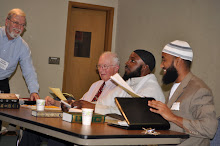


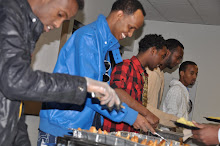





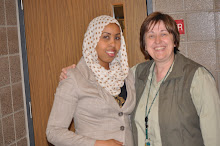







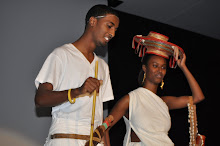








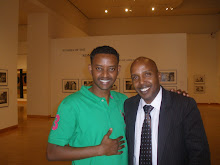























No comments:
Post a Comment